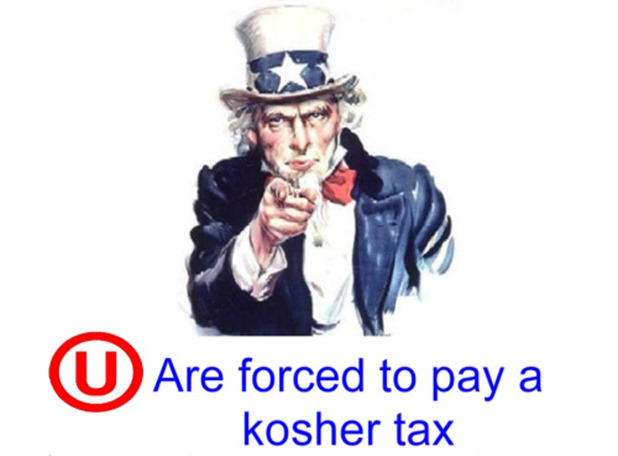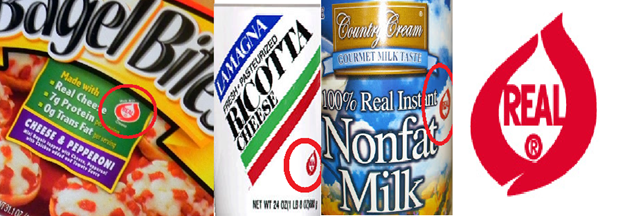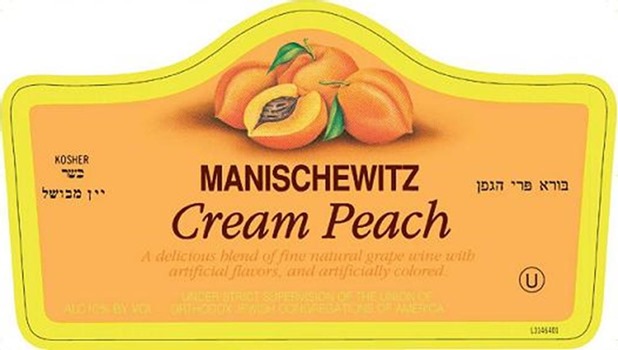Erik Striker
Trad Youth
May 16, 2015
After a long day hocking Sierra Leone conflict diamonds on 47th Street to shiksas as rich as they are dumb, an Orthodox Jewish gentleman finally gets home, takes off his $2,000 dollarschtreimel, and slumps into his chair.
“Hymie, papa’s in the mood to nosh.” said the pear-shaped man who hadn’t bathed in three months to his eldest son, “Do we have any of those Kosher chocolate Santas left?”
“No, we ate them all. You know how much we love Santa in this home” said Hyman.
“Well, what about those Kosher Bacon-Ranch Pringles?”
“I finished them off in Shul. Our head Rabbi took some as well, he loves the taste of bacon.”
“G-D Dammit Hymie!” yelled the permanently disheveled looking man in the off-brand dress shirt, “You know how hard I work to hide my income and buy these snacks with the Goyim’s EBT card, just for you to leave me nothing?!”, “So what is there to eat or drink?”
“Well papa, mother is out buying groceries, so right now, all we have around is Kosher Drano and Kosher Mr Clean w/ Fabreze” replied the young man. The older Jewish man, resigned to his fate of having to wait for supper, finally conceded “Alright then. Fix me up some of that fit-for-Passover purple drank”.
The Rationale For Kosher
The above is the only absurd scenario that would justify the current magnitude of Kosher/Kashrut (which deals specifically with the ingredients and to a lesser degree processing of consumed foods, and nothing else) certification. The fact that Rabbinical organizations are contracted by massive corporate monopolies such as Proctor & Gamble to “supervise” the production of spring water, paper towels, soap, drain cleaner, laundry detergent, and other intrinistically kosher or non-food items, and receive a fee to stamp the subtle and small circled U stamp on their packaging, is in and of itself a shameless, brazen scam.
Close to half of all available products on U.S. supermarket shelves are kosher, a large number of which are inedible, and the industry continues to grow with whimsical plans for expansion, such as a push to pay for aRabbi’s blessing on weed: a “medicinal” piece of vegetation that does not require supervision , as well as Kosher caffeine suppositories for Passover.
The racket is so powerful, that even a minority of Jews have gotten confused. In a 2006 Q&A published on the Kashrut.org website–a major entity in formulating guidelines in Jewish dietary standards–the Rabbi gave a barbed, sarcastic “you’re an idiot…” response to a Jew asking if Drano was Kosher:
“Q: […] what about Drano which may be made from pig bones and skin? IF i use it is better use crystal or liquid or is Liquid Plummer a better choice?
Rabbi’s Reply: Taste each and whichever tastes better, would be the best choice. Please let us know, so that we can send out an email to everyone.”
The cynical humor with which the Kashrut.org authority wrote his take on the status of drain cleaner was reiterated in a Jews for Goy package by the Council of Orthodox Rabbis in Canada, the largest Kosher certifying money-maker in the country, which operates under the auspices of the Canadian Jewish Council (CJC) Israeli fifth column.
COR’s article examines and admits the self-realized irreverence of shaking down Gentiles to certify inedible things like soap as Kosher, through a most likely made up anecdote.
Jewish organizations and mass media (New York Times, Washington Post, etc) rationalize this pointless added business expense by citing “figures” provided by COR and the Orthodox Union themselves. These statistics allegedly demonstrate that Kosher certified products translate into a whopping 20% increase in sales vis a vis non-Kosher products. According to Kashrut tax-collecting organizations, despite Kosher observant Jews being a minority even amongst the 2% Jewish community in North America, other ethnic minorities such as Muslims have a “demand” for Kosher foods, while Gentiles associate kosher with “quality”. This logic, according to them, translates into added profits that allow companies paying for Rabbinical supervision in the manufacturing process to make up the costs through sales, and thus the cost to the consumer is negligible.
The premise is laughable and defies all common sense. If adding the Kosher stamp to food products was so appealing to consumers and translated into a huge 20% gain on competitors, then the symbol would be featured prominently on packaging rather than willfully occulted. To see a relevant comparison, contrast how the American Dairy Association’s well-respected “Made With Real Milk” seal-which guarantees the quality of dairy products-is boldly emphasized on food packages:
Contrast this striking symbol with the esoteric Kosher U stamp:
The first on the left is from a bottle of “Mr Clean with Fabreze” liquid cleaner I found in my bathroom. Notice the flagrant dishonesty in the placement of the Kosher stamp, which is made to look exactly like the red circled R (registered brand trademark) it is subliminally placed beneath. The Heinz Tomato Ketchup bottle uses green for its U stamp and places it next to the word “Heinz”, which the average Gentile shopper would again just assume is some kind of copyright or trademark symbol. The bottle of Arrowhead Water has a more common Kosher tax stamp position: on the side in close proximity to the Please Recycle prompt. Again, most unassuming Gentiles would think the U has something to do with recycling.
In fact, finding the Kosher U on products can often be a daunting task, as they constantly shift placement around even on the same packages, while generally place the tax stamp near completely unrelated text in order to hide in plain sight. The Orthodox Union’s assertion that advertising a product as Kosher is significantly advantageous in the eyes of Gentiles is simply nonsense, as its logo in and of itself is curiously esoteric, unlike the “REAL seal” which everyone associates with cheese or dairy. Food producers who hire them are apparently aware of this, as they go through painstaking efforts to camouflage or obscure their little U.
Could they be fearing Gentile backlash against having to pay extra for something completely useless at best, and destructive at worst?
To make a third comparison, here is a label for a Manischewitz product, which legitimately caters to an observant Jew demographic in America. Notice how the U is not only much larger and a different color than on the aforementioned examples, but there are numerous other indicators in both English and Hebrew that the product is Kosher in case Jews do not recognize the symbol:
If even Jews cannot consistently recognize the U, why doesn’t Heinz or Mr Clean add “KOSHER” in bold squiggly letters on their packages like on traditional Kosher brands? According to both the Anti-Defamation League and the Orthodox Union, non-Jewish Americans specifically seek out Kosher products. In truth, they don’t, and if they knew they had to pay extra in order to subsidize schools, institutions, and political causes that actively exclude and preach hatred against Gentiles, it could snowball into a major controversy .
The Orthodox Union’s affirmation of its “20% higher” sales figure for U stamped products is problematic if conflict of interest is taken into account. The increased appeal of an Orthodox Union endorsement ought to betaken with a grain of Kosher salt. The figure can be traced back to a “study” by Integrated Marketing & Communications, INC, whose president, CEO, and spokesman is an Orthodox Jew himself: Menachem Lubinsky. The company is not only active in marketing and hosting events selling Kosher taxed food, it even publishes a trade publication called “Kosher Today”..
I challenge readers to play a little game of “I Spy” in their pantry, if 3/4 of your products don’t have a U or the less common K on them, you aren’t looking hard enough. After a third or fourth scan of each label, you’ll see what I mean.
The Global Scale Of The Goyim Tax
The Kosher tax does not just apply to American companies, but also any suppliers and producers these multinational corporations use worldwide. The Orthodox Union (U) is in charge of “inspecting” 300 facilities in China alone, in addition to plants in more than 80 countries subject to expensive and frequent surprise visits every year. The Rabbis who are employed to visit the facilities bill all of their expenses to the company, and when you consider the fact that they have to travel from New York or Israel to the industrial producers in China or India, it’s hard to think this doesn’t add up to astronomical expenses. The tedious Kashrut process–which makes sure to split extra hairs on purpose to extract larger fees–means that large companies must pay not only independent fees, but also for Rabbis in organizations such as the Orthodox Union to travel around the world every year to superficially observe every aspect of production.
Goldman’s Gold Mine
Both Kosher certifiers and corporations who contract them are notoriously cagey about the annual fees and additional business costs incurred by the racket. The Anti-Defamation League gaslighters claim that the reason companies refuse to disclose the price and, hence, cost passed down to consumers, is because it is so small it is impossible to calculate (!). The Jewish Daily Forward, on the other hand, admits that costs are willfully obfuscated, and refers to the Orthodox Union’s Kashrut revenues as “a closely guarded institutional secret”.
The money generated by their Kosher department every year is kept secret through the Orthodox Union and other agencies using a questionable “religious” tax-filing exemption loophole to protect their finances and how they use them, as well as keeping what they charge out of the sight of consumer watchdogs and the IRS’ radar. Despite Kosher certification being an obvious for-profit enterprise, it enjoys non-profit status, which means all of the money made is completely tax-free: from the Goys hand to the Jews pocket with no middle-man interference. Yet, when asked about how much money the Orthodox Union makes per year from its Kashrut program, representative Rabbi Moshe Elefant cynically refused to give a direct answer: “If we were making billions, I wouldn’t look the way I do!”
It is impossible to know exactly how much money they’re making unless they are audited. As with all thingsJudaica, the subject lacks transparency and is covered head-to-toe in intrigue. By cross-referencing what we do know, however, we can at least make some scientific guesses.
In Sue Fishkoff’s book, Kosher Nation, she cites the annual fee for Kosher certification to be anything from “hundreds of dollars” to hundreds of thousands of dollars, which may be a gross underestimation when one looks at the sheer scale of production companies like Procter & Gamble and Kraft/Nabisco oversee. The Orthodox Union, which is just one of 1,100 Kosher certification agencies in the world, alone is in charge of 8,000 plants internationally. If we were to take her broad range of figures at face value, arrive at a rough median, then multiply it by 8,000, it is safe to say that OU is making hundreds of millions of dollars from this lucrative shakedown every year.
Rabbi Elefant may be technically right in saying he’s not a billionaire, but don’t let appearances fool you. They may wear cheap clothes they don’t like to iron, but 37% of Orthodox Jews have an income of over $150,000 a year, and that’s considering the fact that most of them go through great lengths to hide their money and cheat the selectively blindfolded taxman, so that is an underestimation as well.
Where is this money coming from? Even the most conservative estimate would suggest that if we were to take revenues generated by the worldwide Kosher certification industry in culmination (since it all goes towards the same Jewish causes anyway), this scam easily produces tens of billions of dollars for Organized Jewry every year. This figure is not the whole story, since travel fees, factory retooling, etc. are not factored in to their net profits. Furthermore, you don’t need to be very creative to guess who is selling some of the “special” Kosher ingredients OU Rabbis demand be used in every step of a products creation and packaging.
How Much Do We Pay? Hebrew Nationals Vs Oscar Mayer Beef Franks
After calling up Kraft, Nabisco, and a few other Kosher certified capitalist monopolies to ask about how much extra we pay, I was met with confusion, and even inferred to be an anti-Semite, but given no concrete answer. With few name brand products not subject to the Kosher tax, arriving at an exact figure becomes difficult.
But one sector where a comparison is easy to make is in the realm of hot dogs. Hebrew National hot dogs are perhaps the most famous Jewish food product consumed by Gentiles, and unlike other brands, “Jewdogs” use their Kosher status as a selling point (“We Answer To A Higher Authority”). Their business angle is all based on the dishonest calumny that non-Kosher hot dogs are made from pig snouts and peckers, and that Kosher certification guarantees that only high quality cuts of beef are used.
In truth, the FDA bans the use of mechanically separated beef in hot dogs (although chicken and Turkey are allowed to be used in budget brands), and additionally, requires that companies using “mystery” meat from by-products explicitly mention it on packaging.
With this in mind, why then are Hebrew Nationals so much more expensive than non-Kosher Oscar Mayer Classic Beef Franks? At K-mart, for example, a 7-pack of Hebrew Nationals costs $4.99, compared to a 10 pack of the Oscar Mayer’s equivalent at $4.29. If you put the two packages side-by-side, both products state that they have: “No Artifical Flavors, No Artificial Colors, No-Fillers, No-Byproducts”. Their nutritional value per-frank is virtually identical, as are the ingredients they use. Hebrew National is produced by the multi-national Con Agra foods, which takes in about $16 billion dollars in revenue per year, while Oscar Mayer is owned by Kraft Foods which takes in $18 billion per year.
Perhaps Hebrew Nationals claim of using unspecified “premium cuts of beef” is why they are so much more expensive, but their assertion is unfounded. On average, “Kosher” cuts of beef are also the cheapest (Cheek, Chuck, and Brisket), while the expensive cuts that produce the most sought after steaks and beef products are largely non-Kosher. They want you to think they’re grinding up Fillet Mignon and making hot dogs out of it, but in truth Hebrew Nationals are made from Chuck ground beef, which is hardly “premium”, as it is the fattiest (78%-84% Lean), but the only Kosher, source of hot dog meat. Oscar Mayer Beef Franks use mostly Chuck mixed in with higher quality (but non-Kosher) ground beef sources such as Round (85-89% Lean) and Sirloin (90-95%). You can see this difference proven on the nutritional labels of both, since the standard serving of Hebrew Nationals have more fat and calories than the Oscar Mayer version.
So then, why are Hebrew Nationals a ripoff? It can’t be taste: buy both varieties and taste them for yourself, you won’t know the difference. Their sales seem to show they are almost equally as popular. There is only one difference in the production of the two hot dogs, and from there you can start imagining how much Kosher tax you’re paying on all your other products. Every kind of Kosher hot dog is considerably more expensive than most non-Kosher beef franks, including Fairway’s generic brand Jewdogs.
When Tay Sachs-free curious consumers ask about how much they’re paying extra for Kosher certification, they are spouting a “canard”, but the subject is freely and hotly debated within Jewish circles and publications. The price of Kosher certification in the Israeli newspaper Haaretz, for example, has been explicitly referred to as “gouging”. Haaretz even categorizes Kosher products as often inferior to non-Kosher ones, which is a blow to the myth that food subject to Rabbinical approval is somehow superior or purer. In fact, observant Jews often complain that it is hard to find organic foods that are Kosher certified, as the Orthodox Union’s fees are prohibitive for the small enterprises that dominate this market. In Israel, where the major supermarket chains carry exclusively Kosher-inspected food, the Finance Ministry was forced to intervene in reaction to the abusive price of certification that led to increases of up to 35% on imported goods. In newspaper’s for Jewish eyes only, the fees are referred to as an “Insane Expense”.
But don’t expect any intervention from our government, that would be hate.
By and large, the consumer pays about a few cents extra per product (depending on what it is) when they go to the grocery store, due to the tax spread out amongst unwitting Gentiles. But in a country with hundreds of millions of people like the United States, where Goy shoppers are paying anywhere from hundreds of dollars to thousands of dollars extra every year for something they don’t need or want, this adds up to windfall profits for Kosher certification groups (who even fight amongst themselves over “turf”).
In the end, the specifics don’t matter, paying even a single cent in excess on our supermarket bill to fund the morally abhorrent conspiracies of Organized Jewry is both unacceptable and dangerous.
Where Does The Money Go?
The Goyim tax collected by the Orthodox Union and other Kashrut companies goes towards funding Jewish schools, Jewish charities, “Israel Awareness”, and miscellaneous aspects of Jewish communal life where Gentiles are not only unwelcome, but incessantly bashed (where do you think the secular Jews in academia got their white privilege idea?), as commanded by the Talmud. Predictably, the Orthodox Union’s Kosher branch also sustains its political lobbying, which specializes in the genocide and displacement of whites and Palestinians. The Orthodox Union has been badgering the U.S. government for open borders immigration since 1954 all while helping bankroll and garner political support for illegal and racist Israeli settlements that are ethnically cleansing Palestinians from their own land. The Orthodox Union are very concerned about “immigrant justice” in the United States, but have stayed deafeningly quiet on Israel’s Zero Tolerance anti-Gentile immigration policy, as well as financed a number of Israeli Defense Force programs.
As if the billions we pay at the supermarket and in taxes to Israel every year weren’t enough, the OU also re-invests our money by lobbying to get every last drop of blood out of us. In places where there are many Jews, they are able to use their Kosher tax money to pressure politicians into forcing the public to subsidize their expensive and exclusive private Yeshiva schools and scores of other projects that are too numerous to list. Unlike other religious schools, the Jewish schools we Goyim are paying for casually reject students according to their race, in fact, even mixed-race children who have one Jewish parent (on the father’s side) are either explicitly banned from enrolling or, in other districts, accepted only for pragmatic reasons. Meanwhile, Catholic schools are expected to not only accept Jews, but if they are prestigious, even have them as administrators–the case of Jeffrey Brand at the Jesuit University of San Francisco is a case in point. In the 2000s, 1,942 Catholic schools have been forced to close, and there’s no public funding or Catholic Food Tax to save the rest of them.
“Kosher Nostra”
So why do all the major businesses take up a significant additional expense in production just for a Rabbi to walk around and put a little, clandestine U on their products?
The answer is protection.
In an article published by the Huffington Post, Rabbi Jason Miller decided to divulge some inside information in his “very compassionate” (or shameless, if you translate it into the Jew-to-Goyish dictionary) self-promoting article announcing the entry of his company,v“Kosher Michigan”, into the rat race. In the article he goes through a number of anecdotes, mostly dealing with the cut-throat battle between agencies for turf, but also including a case where Jews were threatening the lives of government food inspectors over some Kosher certification issue. He correctly calls the syndicates what they are: “Kosher Nostra”. He quotes another Rabbi, Don Yoel Levy, who summarizes the not so holy intentions of this tax on Goyim: “Kashrus today is about power and money”.
For the myriad of smaller companies that provide individual ingredients to food giants like Nabisco–which is owned by Irene Rosenfeld’s global Mondelez International empire–it’s more or less a question of “compelling” them by holding contracts hostage. Contrary to what some other material on the Kosher tax suggests, Rabbis don’t personally walk into every business start-up and demand money…not because they wouldn’t, but because there’s just not enough of them to do it. Instead, they focus on the big accumulators of capital in the food industry, many of whom are Jews themselves. On page 54 of Fishkoff’s Kosher Nation (which is insightful, but obviously does not give the whole story), she writes that ingredients must be certified down to the “micro-chemical”. She quotes a certain Rabbi Yaakov Horowitz who expounds deeper:
“If Nabisco all of a sudden says it will only use one kind of kosher oil for its entire facility, which is huge, there are companies out there that will become kosher just for Nabisco. These people may not know anything about kosher or want to know anything about kosher, but they want that Nabisco account”.
Another strong motive for submitting to the Rabbinical councils is that Gentile-owned companies fear the power Jews wield in all segments of Western national life. This is not to excuse their treason, since capitalists at the higher levels will sell their grandma to protect the shares in their portfolio. Gentiles who rise up the ladder and manage to break into ranks of the elite get to know Jews really fast, as any Goy working on Wall Street (usually beneath a glass ceiling, with people carrying one another in chairs singing Hava Nagilasticking their tongue out and flipping the bird to the equally as greedy Gentiles beneath) will tell you when they’re sure nobody’s listening. The concerns of Gentile corporate food producers are not unfounded, after all, the last two commissioners of the Food and Drug Administration–an entity capable of making a problem for your food production if they want to–have been Jewish (Stephen Ostroff and Margaret Hamburg).
Additionally, Jewish control of the state isn’t even that relevant, all it would take to destroy a food company would be to publish an investigative piece “exposing” the dirty practices pretty much all industrial producers engage in if, for whatever reason, they have a spat with the Rabbis soliciting them. The capitalists prefer to submit, pass the cost off to their customers, and not have to risk falling afoul of the Kosher Nostra. When you choose your money over your race, you’re choosing Jewish world power.
So what can be done about this despicable theft? Unless you’re planning a hunger strike, boycotting Kosher certified products is impossible. The only real solution would be to put into motion a California-style petition and get a referendum demanding full disclosure and investigation into the seedy world of Kosher certification. Money may be the God of the Jews, but the Kashrut business should not enjoy, and hide its income, behind a 501(c)3 Church tax-exemption.




